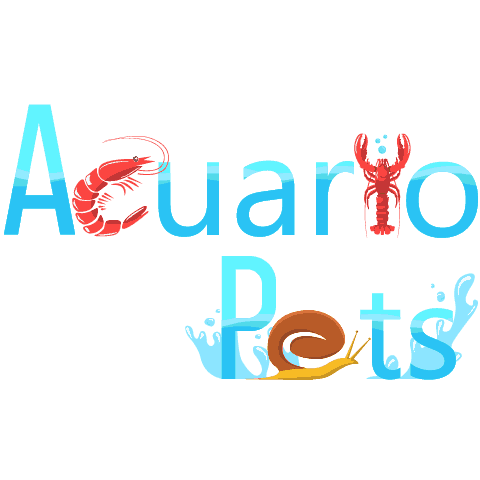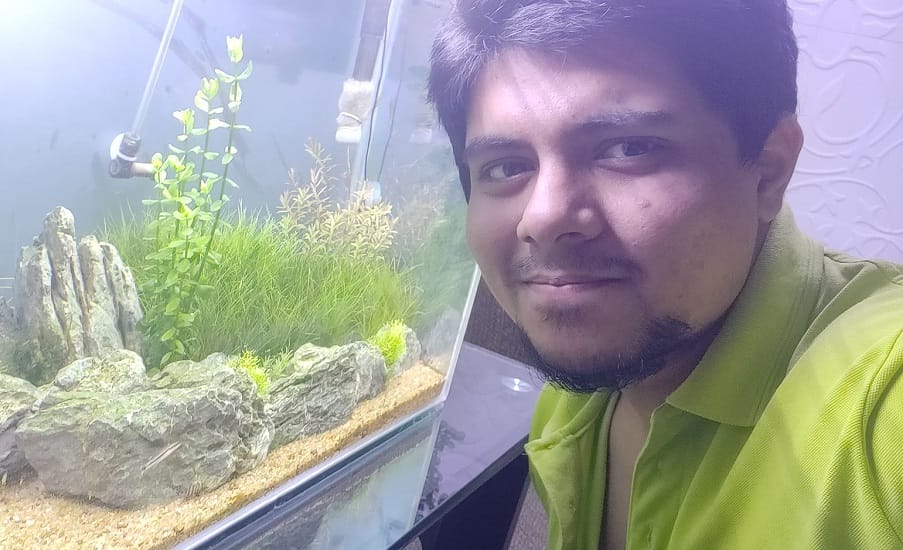This post was created with help from AI tools and carefully reviewed by a human (Muntaseer Rahman) . For more on how we use AI on this site, check out our Editorial Policy.
Check Out These FREE Tools We Made JUST For You!
Why Your Betta Fish Spits Out Food (And How to Fix It)

So, your betta fish takes the food, chews it like it’s considering a life decision, and then spits it out.
Rinse and repeat.
It’s frustrating to watch. Not only are you wasting food, but you’re also wondering if your fish is sick, picky, or just messing with you.
The truth? Bettas have a few solid reasons for pulling this stunt, and most of them are easy to fix.
Let’s go through the main causes and then talk about what you can do to make your betta actually eat the food instead of treating it like a chew toy.
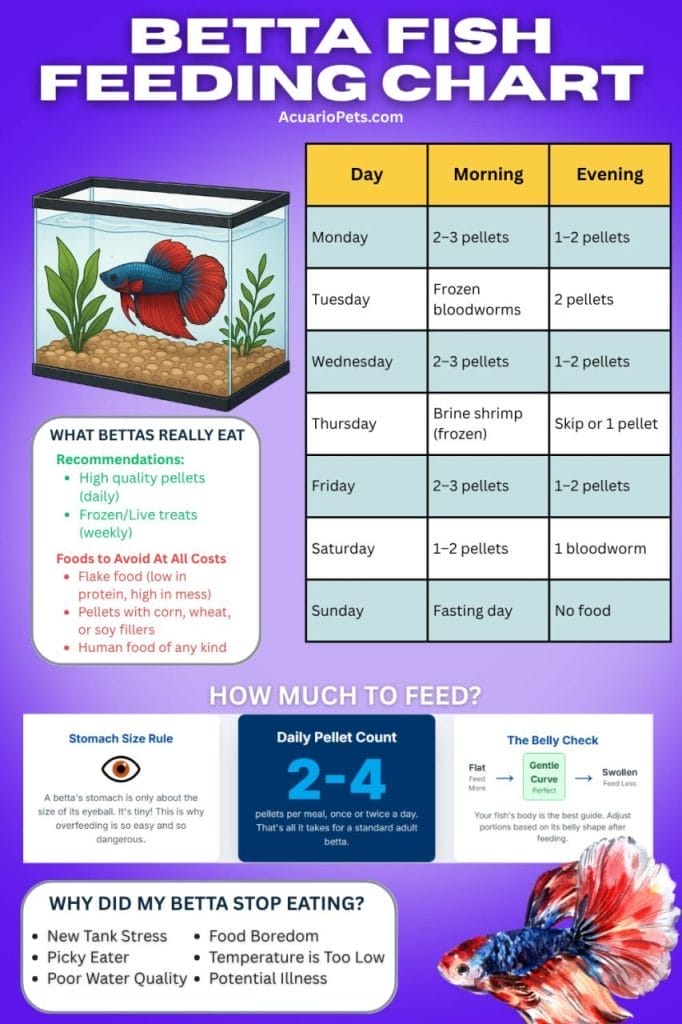
1. The Food Is Just Too Big
Bettas have tiny mouths and even tinier stomachs. A food pellet that looks small to you can feel like trying to swallow a whole burger in one bite for them.
Large pellets are a common reason they chew, pause, and spit food back out. They may try again, but if it’s uncomfortable, they’ll give up.
The fix:
Switch to micro-pellets or crush larger pellets into smaller pieces before feeding. You can also look for brands labeled “mini” or “nano” pellets designed for small-mouthed fish.
If you’re feeding frozen foods, break them into bite-sized chunks before dropping them in. And if you’re giving live food, make sure it’s the right size—no giant worms that look like they could take them down.
2. The Texture Is All Wrong
Hard, dry pellets can be like biting into a stale crouton. Your betta might try, realize it’s a jaw workout, and spit it right out.
Bettas prefer softer foods they can easily chew and swallow. In the wild, they eat insects and larvae—nothing that feels like it’s been sitting in a jar for months.
The fix:
Soak pellets in a cup of tank water for 2–5 minutes before feeding. This softens them without washing away all the nutrients.
Some bettas love flakes, while others prefer frozen or live food. Don’t be afraid to switch things up until you find a texture they like. Just keep in mind that over-soaking pellets can cause them to fall apart and make a mess, so keep it short.
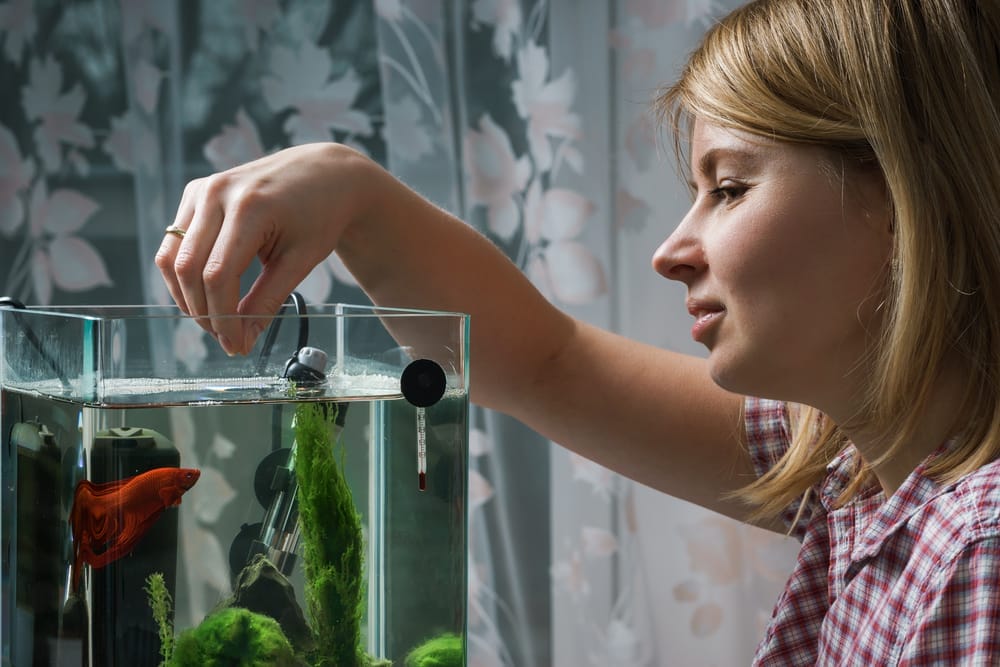
3. Your Betta Is Just Picky
Yes, bettas can be divas. Some will only eat certain brands, certain colors, or certain shapes of food. Others will happily take live brine shrimp but act like pellets are beneath them.
It’s not always “spoiled” behavior. Sometimes, they simply don’t recognize something as food if they weren’t raised on it. A betta that grew up on flakes might spit out pellets the first few times.
The fix:
Offer variety. Rotate between pellets, flakes, frozen bloodworms, brine shrimp, and daphnia. This not only keeps them interested but also gives them a balanced diet.
If your betta has been on a steady diet of one thing, try introducing the new food slowly—mix it with their regular food until they get used to it.
4. Stress or Poor Water Quality
A stressed betta is not going to eat well. If your tank water is dirty, too cold, or has the wrong parameters, food becomes the last thing on their mind.
Stress can come from:
- Low water temperature
- Ammonia or nitrite spikes
- Overly strong filter current
- Sudden tank changes
- Aggressive tank mates (even their own reflection in the glass)
The fix:
Keep the water clean, warm (78–80°F), and stable. Use a good water testing kit, do regular partial water changes, and make sure your filter flow isn’t blasting your betta around.
If your betta is in a new tank, give it a few days to settle before worrying about eating habits.
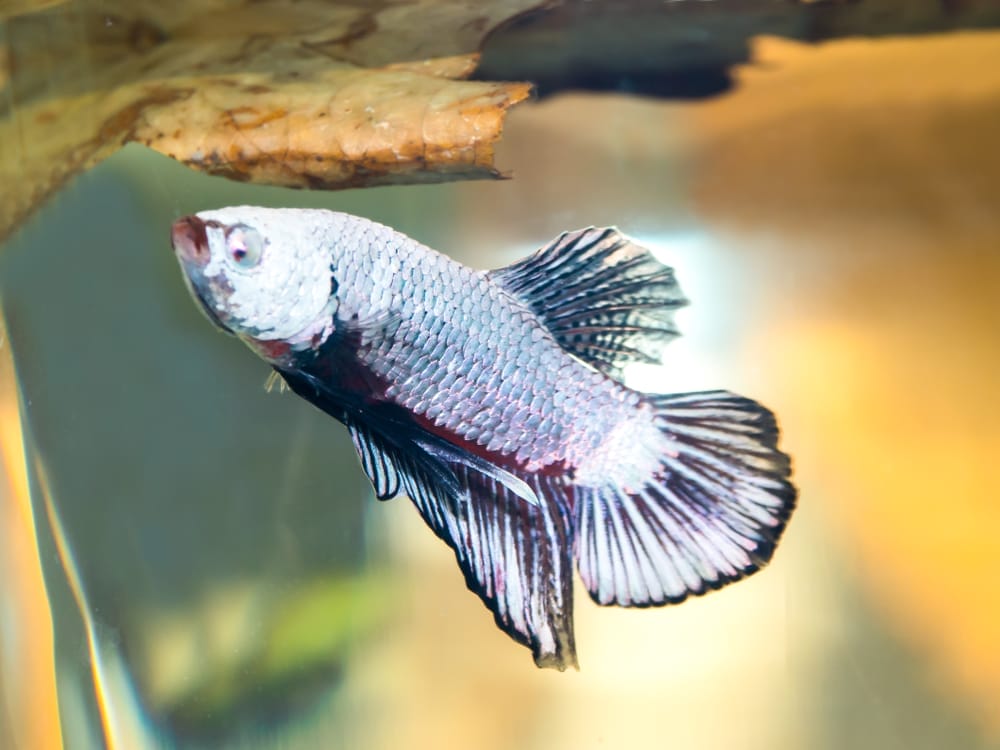
5. They’re Just Not Hungry
Sometimes, the problem is simple—they’ve had enough. Bettas have small stomachs (about the size of their eye), so they don’t need much food at once.
Overfeeding not only causes spitting but can also lead to constipation, bloating, and water quality issues.
The fix:
Feed in small portions. Drop in one pellet at a time and wait until they finish before giving another. This way, you avoid leftovers sinking and fouling the water.
If your betta is refusing food, try fasting for a day. This resets their appetite and helps with digestion.
How to Fix the Spitting Habit Once and for All
Let’s pull it all together. Here’s your action plan:
1. Use smaller or softer foods.
Micro-pellets, crushed pellets, or pre-soaked pellets will be easier to eat. Frozen or live foods are also a great option.
2. Give them variety.
Don’t stick to one type of food forever. Mix things up with bloodworms, brine shrimp, daphnia, and high-quality flakes.
3. Feed small portions.
One piece at a time. Stop before they look full.
4. Keep the water perfect.
Temperature steady at 78–80°F, ammonia/nitrite at 0 ppm, and a gentle filter flow.
5. Watch and adjust.
If they still refuse, give them a day without food and try again with something different.
When Spitting Could Mean Trouble
While most bettas spit food for harmless reasons, sometimes it’s a red flag. If you notice these signs along with food refusal, it could be illness:
- Swollen belly
- White stringy poop
- Clamped fins
- Lethargy or hiding constantly
- Gasping at the surface
These could point to constipation, parasites, or other health issues. In that case, research the symptoms, isolate the fish if needed, and consider treatment. Don’t just keep tossing food in and hoping for the best.
The Bottom Line
Betta fish spitting out food is usually more about size, texture, taste, or tank conditions than anything serious. Once you figure out what they actually like and keep their environment right, most will start eating like little underwater wolves.
And yes, they might still give you the occasional dramatic chew-and-spit just to remind you they’re in charge. But hey—that’s part of the betta charm.
About Author
Hello, I’m Muntaseer Rahman, the owner of AcuarioPets.com. I’m passionate about aquarium pets like shrimps, snails, crabs, and crayfish. I’ve created this website to share my expertise and help you provide better care for these amazing pets.
Disclaimer
This site is owned and operated by Muntaseer Rahman. AcuarioPets.com is a participant in the Amazon Services LLC Associates Program, an affiliate advertising program designed to provide a means for sites to earn advertising fees by advertising and linking to Amazon.com. This site also participates in other affiliate programs and is compensated for referring traffic and business to these companies.
